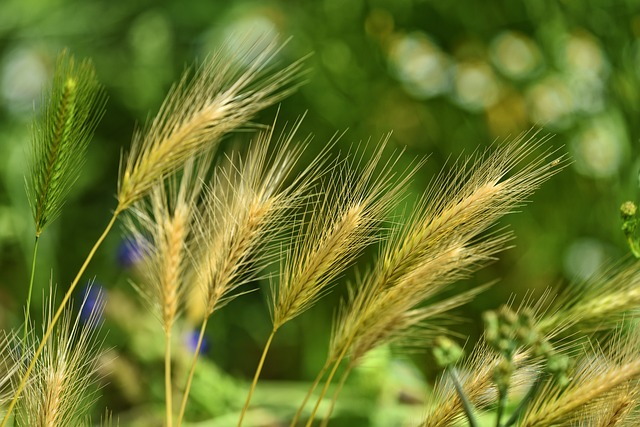The text discusses the potential health benefits of THCA (tetrahydrocannabinolic acid) flower tips, a non-psychoactive component of raw cannabis flowers rich in antioxidant properties. These flower tips not only protect against cellular damage from oxidative stress but also offer anti-inflammatory and analgesic effects due to their interaction with the endocannabinoid system. THCA's antioxidant potential is highlighted as being on par with vitamins C and E, making it a promising area of research for health and wellness, particularly in addressing conditions linked to oxidative damage. The presence of a full spectrum of cannabinoids and terpenes in THCA flower tips amplifies its antioxidant capabilities, suggesting their role in promoting health and well-being. Key factors in cultivating high-quality THCA flowers include optimal light conditions, stable environmental temperatures and humidity, healthy soil enriched with organic matter, and careful monitoring of pH and nutrients to ensure a high potency product. The unique component betulinic acid within the THCA flower is also noted for its antioxidant effects, offering an alternative therapeutic approach to conventional cannabis derivatives. The integration of THCA flower into daily wellness routines through vaporization or edible infusion is proposed as a means to harness its antioxidant properties for health maintenance and disease prevention, with the recommendation to consult healthcare professionals for proper dosage guidance.
Explore the multifaceted world of THCA flower, a non-psychoactive powerhouse that’s capturing the attention of wellness enthusiasts and researchers alike. This article delves into its unique composition and the myriad potential health benefits it offers, particularly focusing on its antioxidant properties. Discover how THCA fits within your health regimen, from cultivation tips to understanding its effects when consumed raw versus processed. Engage with scientific insights into its cannabinoid profile and learn how this natural compound could be a valuable addition to your wellness routine.
- Unveiling THCA Flower: An Overview of Its Composition and Potential Benefits
- The Science Behind THCA: A Deep Dive into Its Cannabinoid Profile
- THCA Flower's Antioxidant Properties: Understanding Their Impact on Health
- Cultivation Essentials: Tips for Growing High-Quality THCA Flower
- Exploring the Therapeutic Potential of Raw THCA Flower vs. Processed Forms
- Incorporating THCA Flower into Your Wellness Routine: Usage and Dosage Guidelines
Unveiling THCA Flower: An Overview of Its Composition and Potential Benefits
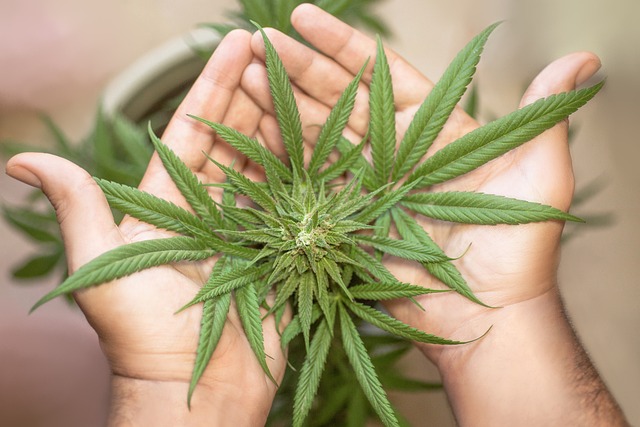
Unveiling THCA flower tips, we delve into the intricate composition of this cannabinoid-rich plant and its potential health benefits. Tetrahydrocannabinolic acid (THCA) is the non-psychoactive precursor to the well-known compound tetrahydrocannabinol (THC). THCA is found abundantly in raw cannabis flowers and possesses a distinct profile of cannabinoids, terpenes, and flavonoids that contribute to its therapeutic potential. Among these, the antioxidant properties of THCA are particularly noteworthy. These properties may help protect cells from damage caused by oxidative stress, which is associated with various diseases and aging processes. Additionally, THCA interacts with the body’s endocannabinoid system, potentially offering relief for inflammation, pain, and other symptoms without the psychoactive effects typically linked to its decarboxylated form, THC. Research into the specific antioxidant properties of THCA flower tips is ongoing, but early findings suggest a promising role in supporting overall health and well-being. As interest in cannabinoids grows, understanding the unique composition and benefits of THCA flower tips becomes increasingly important for those exploring natural remedies and supplements.
The Science Behind THCA: A Deep Dive into Its Cannabinoid Profile
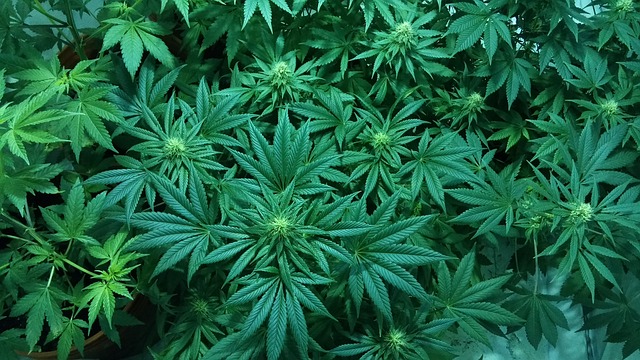
delta-9-tetrahydrocannabinolic acid (THCA) is the non-psychoactive precursor to the well-known cannabinoid delta-9-tetrahydrocannabinol (THC). Found abundantly in raw cannabis flowers, THCA possesses a unique cannabinoid profile that includes various other cannabinoids and terpenes, which contribute to its potential therapeutic benefits. The interest in THCA stems from its own distinct properties, which include anti-inflammatory, analgesic, and antioxidant effects. Research indicates that THCA interacts with the body’s endocannabinoid system through its affinity for both CB1 and CB2 receptors, without the psychoactive effects associated with its decarboxylated form, THC. This interaction may influence a wide range of physiological processes, including pain management and inflammation reduction.
The antioxidant properties of THCA are particularly noteworthy. Studies have shown that THCA can protect cells from oxidative stress by neutralizing free radicals. This is significant because oxidative stress is linked to a host of diseases, including neurodegenerative disorders like Alzheimer’s and Parkinson’s. The antioxidant activity of THCA is comparable to that of vitamin C and vitamin E, making it a promising candidate for therapeutic applications aimed at mitigating oxidative damage. Additionally, the presence of additional cannabinoids and terpenes in THCA-rich flower tips further enhances the overall antioxidant capacity, suggesting a synergistic effect that could be harnessed for health and wellness purposes.
THCA Flower's Antioxidant Properties: Understanding Their Impact on Health
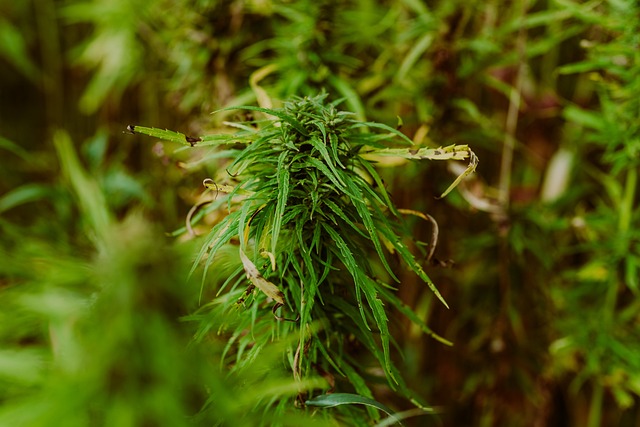
Delta-9-tetrahydrocannabinolic acid (THCA) is the non-psychoactive precursor to THC, found abundantly in raw cannabis flowers. One of the notable attributes of THCA is its robust antioxidant properties, which have garnered attention within the health and wellness community. These antioxidants are pivotal in neutralizing free radicals, unstable molecules that can cause oxidative stress and contribute to various diseases when their levels exceed the body’s capacity to counteract them. Research has indicated that THCA flower extracts possess a unique antioxidant potential, as evidenced by studies evaluating their efficacy in combating cellular damage associated with inflammation and oxidative stress. This is particularly relevant in conditions where the body’s natural antioxidant defenses are compromised, suggesting that THCA flowers could offer a supportive role in health maintenance and disease prevention.
The antioxidant properties of THCA flowers are not isolated; they are part of a broader range of phytochemicals, including cannabidiol (CBD) and other cannabinoids, terpenes, and flavonoids, all of which contribute to the plant’s therapeutic potential. These compounds synergistically enhance the antioxidant capacity, providing a comprehensive approach to promoting health and protecting against the detrimental effects of environmental and metabolic stressors. As such, incorporating THCA flower extracts into one’s wellness regimen may be beneficial for supporting overall health and well-being, particularly in mitigating the impact of oxidative damage over time.
Cultivation Essentials: Tips for Growing High-Quality THCA Flower

Cultivating high-quality THCA flowers requires a meticulous approach, optimizing environmental conditions and adhering to best practices in agriculture. A key factor in producing top-tier THCA flowers is understanding the plant’s preference for light, as THCA synthesizes under specific wavelengths during different growth stages. Providing ample sunlight or tailored artificial lighting can enhance not only the potency but also the flavor profiles of the THCA flower. Additionally, maintaining an optimal temperature and humidity level is crucial for healthy plant development. Monitoring these conditions closely ensures that the plants do not become stressed, which can compromise their antioxidant properties and overall yield.
Ensuring soil health is another vital aspect of cultivation. The soil should be rich in organic matter to support the plant’s nutritional needs throughout its lifecycle. Regular testing and adjusting of the pH and nutrient levels are essential to prevent deficiencies or toxicities that can affect the THCA concentration and the flower’s quality. Furthermore, implementing integrated pest management practices helps protect the plants from harmful insects and diseases, further contributing to the purity and integrity of the final product. By focusing on these cultivation essentials, growers can maximize the therapeutic benefits of the THCA flower, including its remarkable antioxidant properties, which are increasingly recognized for their potential health applications.
Exploring the Therapeutic Potential of Raw THCA Flower vs. Processed Forms

Betulinic acid, a constituent found in raw THCA flower, has garnered attention for its potential therapeutic benefits. This naturally occurring compound is known for its antioxidant properties, which can help combat oxidative stress and inflammation within the body. The raw form of THCA flower, which contains this acid in abundance, presents an intriguing alternative to processed forms of cannabis, such as THC or CBD products. Research indicates that the antioxidant properties of THCA may offer protective effects against various diseases by neutralizing harmful free radicals and supporting cellular health.
The raw THCA flower’s potential extends beyond betulinic acid, as it also contains a host of other beneficial cannabinoids and terpenes in their natural state. These compounds synergize to create what is often referred to as the ‘entourage effect,’ which may enhance the therapeutic benefits when consumed in their unaltered form. In contrast, processed forms typically undergo various methods of extraction and refinement that can alter or diminish these naturally occurring elements. As a result, while processed THC products are widely available and widely used for their psychoactive effects, the raw THCA flower offers a different therapeutic profile with distinct antioxidant properties that may be beneficial for individuals seeking alternatives to conventional treatments.
Incorporating THCA Flower into Your Wellness Routine: Usage and Dosage Guidelines
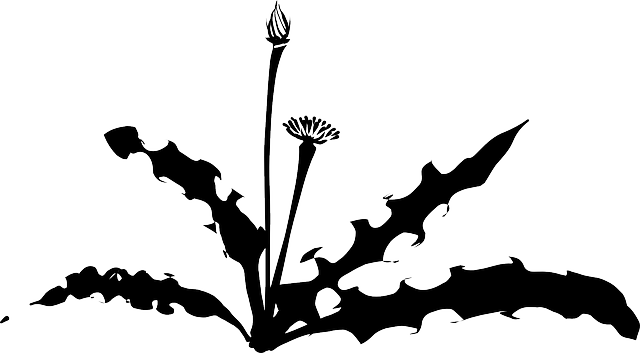
Including THCA flower in your wellness routine can offer a range of potential health benefits, particularly due to its antioxidant properties. Tetrahydrocannabinolic acid (THCA), the raw form of THC found in cannabis plants, has been studied for its therapeutic effects without the psychoactive component that is present in THC. When incorporating THCA flower into your daily wellness regimen, it’s important to consider how this natural compound interacts with your body’s endocannabinoid system, which plays a role in regulating various functions and maintaining balance.
To fully harness the antioxidant properties of THCA flower, start by integrating it into your routine through vaporization or infusion into edibles. Vaporizing allows for efficient absorption of THCA without combustion, preserving its beneficial compounds. When using THCA flower, dosage is a key factor; beginners should start with small amounts to gauge their body’s response and adjust accordingly. A typical starting dose might be around 5-10 milligrams of THCA, depending on the individual’s tolerance and desired effects. It’s advisable to consult with a healthcare professional or a knowledgeable wellness expert when determining the right dosage for your needs. By following usage and dosage guidelines, you can effectively incorporate THCA flower into your wellness routine, potentially reaping its antioxidant benefits to support overall health and well-being.
THCA flower, rich in its unique cannabinoid profile and boasting notable antioxidant properties, presents a compelling subject for exploration. This article has delved into the various facets of THCA, from its composition and potential health benefits to cultivation tips and therapeutic effects. For those intrigued by the wellness applications of cannabinoids, understanding how THCA flower can be integrated into one’s routine, along with appropriate usage and dosage guidelines, is paramount. As a source of natural antioxidants, THCA flower may offer significant contributions to overall health, setting a new standard for holistic well-being. With careful cultivation and mindful consumption, THCA flower has the potential to become an integral part of one’s health regimen.
